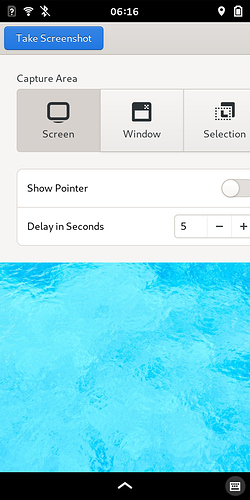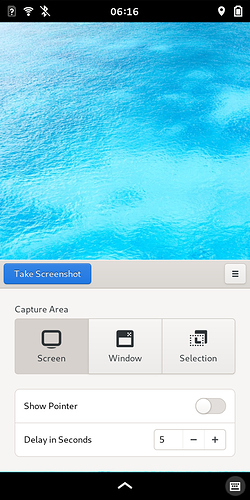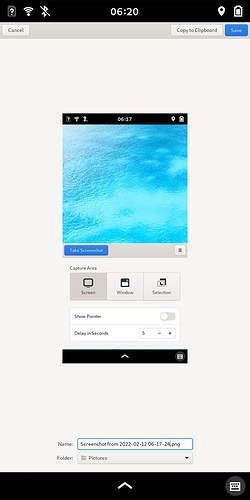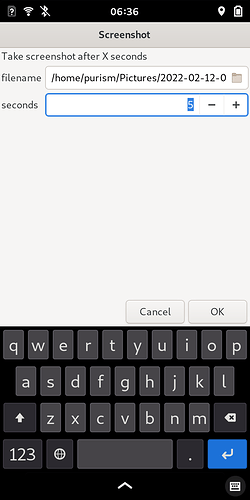GNOME Screenshot vs. PureOS Screen Shot:
GNOME Screenshot doesn’t scale to screen out-of-the-box:
But can be set to always scale correctly by issuing this command:
gsettings set sm.puri.phoc.application:/sm/puri/phoc/application/org-gnome-screenshot/ scale-to-fit true…Which then makes it possible to see and press the Save button (without the scale-to-fit command, you would have to change orientation to landscape in order to see the button):
PureOS Screen Shot:
Scales perfectly by default, and produces, then saves the screenshot without needing the extra “Save” step:
All screenshots for either app are saved to the Pictures directory.



